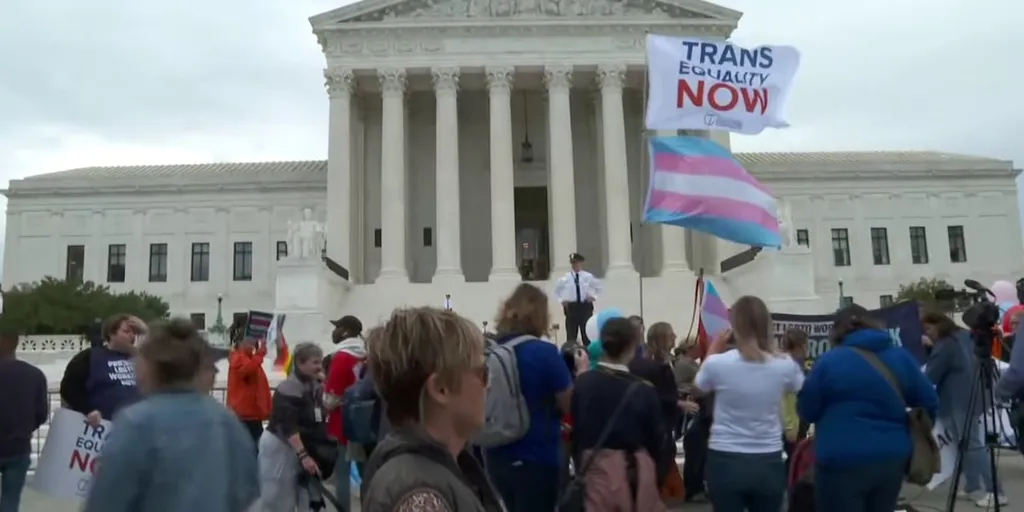NASHVILLE, Tenn. (WSMV) - On the nation's biggest stage, a fierce debate surrounds a topic that originated in the Tennessee State House.
In arguments that passed the two-hour mark Wednesday, five conservative justices voiced varying degrees of skepticism of arguments made by the Biden administration and lawyers for Tennessee families challenging the ban.
"The Constitution leaves that question to the people's representatives, rather than to nine people, none of whom is a doctor," Roberts said in an exchange with American Civil Liberties Union lawyer Chase Strangio.
The court's three liberal justices seem firmly on the side of the challengers, but it's not clear that any of the court's six conservatives will go along. Justice Neil Gorsuch, who wrote the majority opinion in 2020, has yet to say anything.
The Biden administration and families challenging Tennessee law urge justices to apply similar analysis as in 2020 when it found "sex plays an unmistakable role" in employers' decisions regarding transgender individuals.
"I think the moral argument more than undermines what is actually happening here, which is an erosion of our individual freedoms and rights," Rep. Aftyn Behn (D-Nashville) said.
Tennessee's law bans puberty blockers and hormone treatments for transgender minors. Strangio is the first openly transgender person arguing before justices.
"Tennessee's elected officials carefully considered evidence and passed a law to protect Tennessee kids," Tennessee Attorney General Jonathan Skrmetti said. "The Constitution allows this."
The administration argues there's no way to determine whether "treatments must be withheld from any particular minor" without considering their sex.
"This statute on its face says you can't have medications inconsistent with sex," U.S. Solicitor General Elizabeth Prelogar argued before the court. "It doesn't matter what you think about transgender discrimination generally; that's a sex-based line."
The state acknowledges banned treatments for transgender minors can be prescribed for other reasons but rejects claims of sex-based discrimination. Instead, it aims to protect minors from risks associated with gender-transition procedures.
"Using hormones and puberty blockers to address a physical condition is far different than using it to address psychological distress associated with one's body," Tennessee Solicitor General J. Matthew Rice argued.
The law distinguishes between minors seeking drugs for gender transition versus other medical purposes, affecting both boys and girls equally according to AG Skrmetti's brief.
